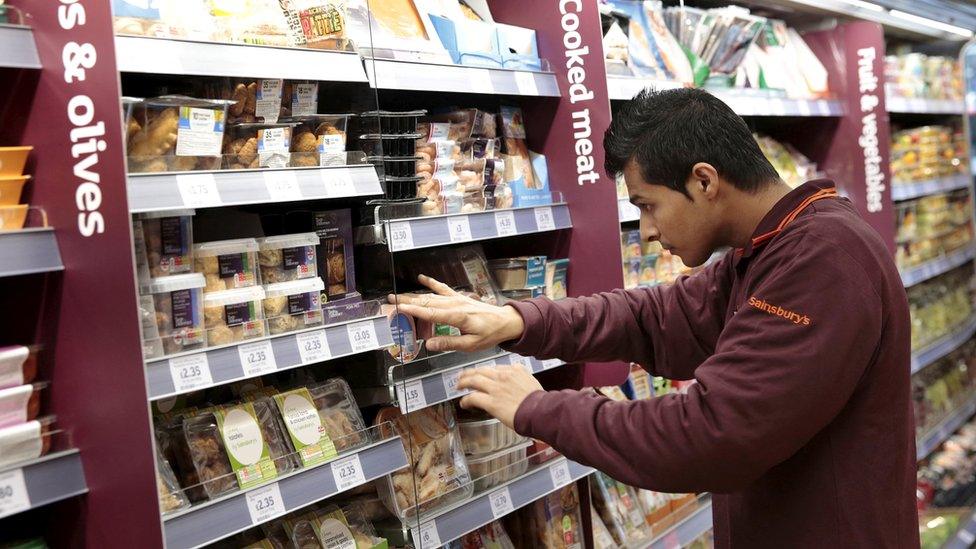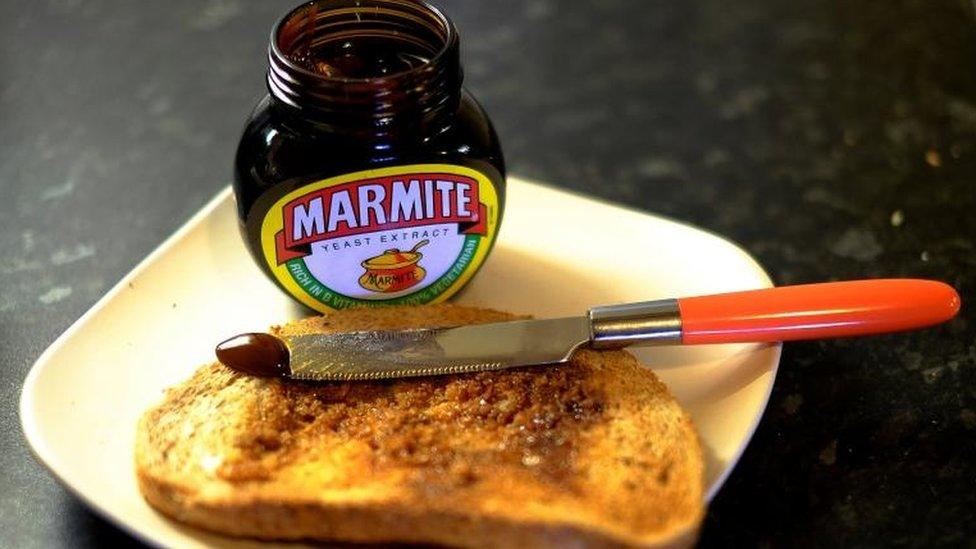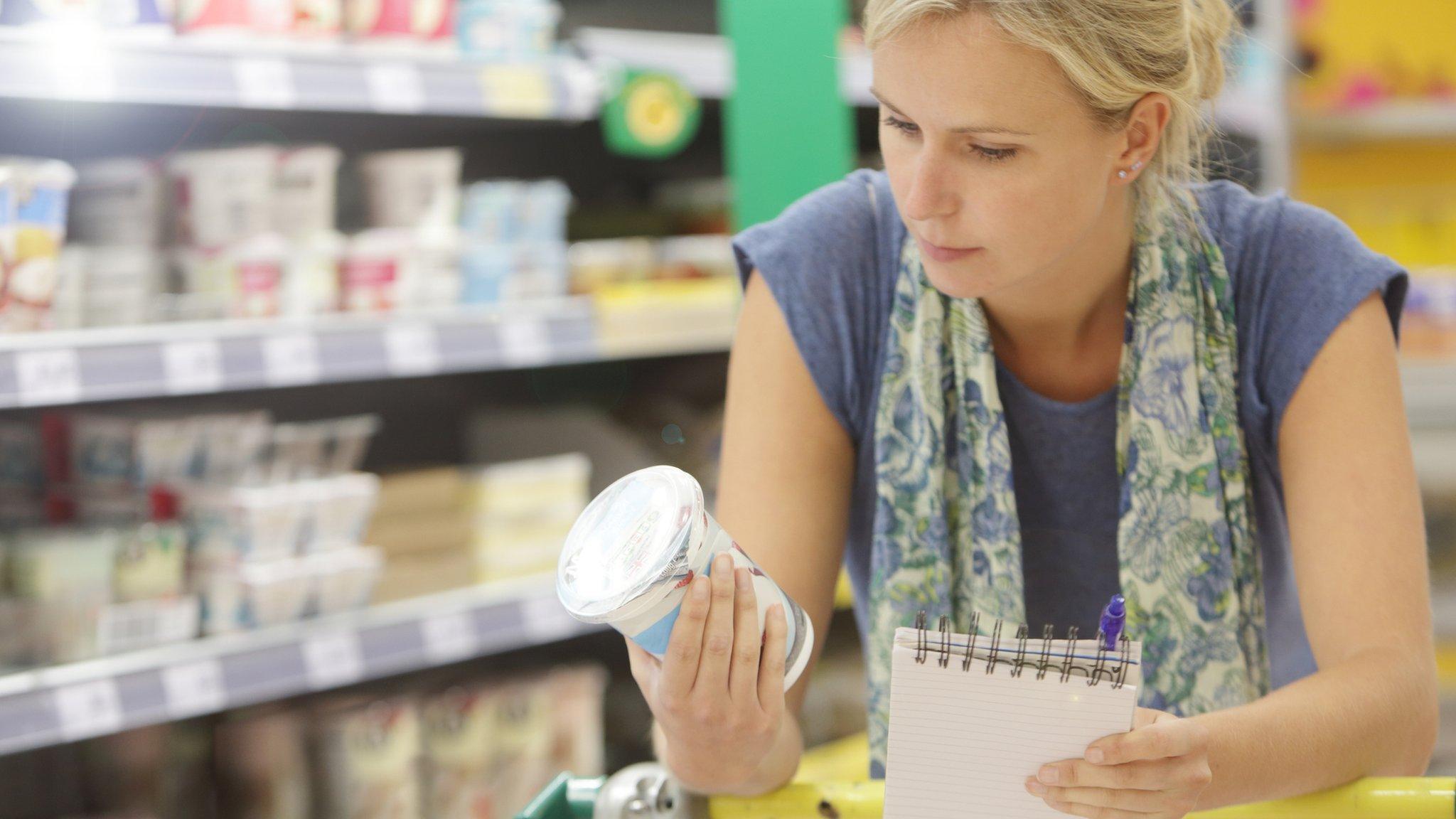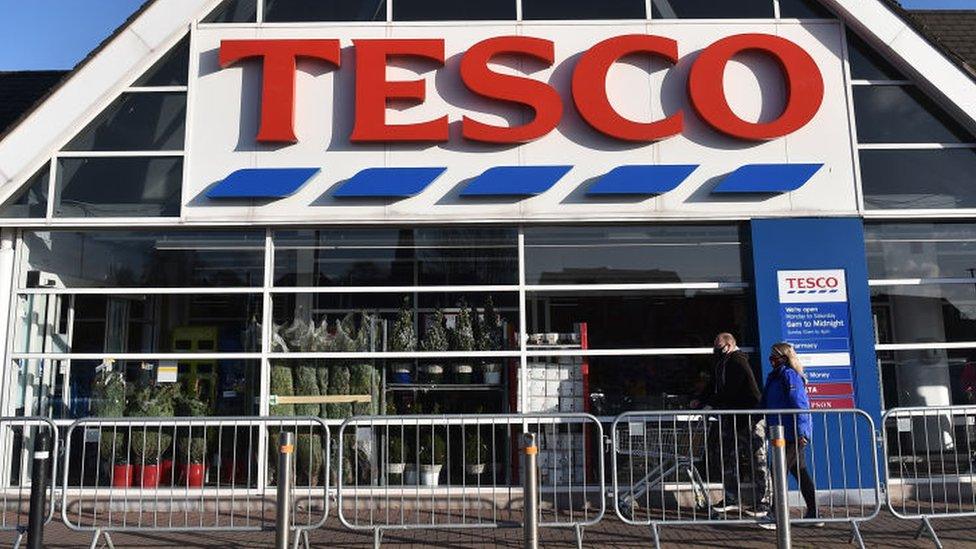Sainsbury's says shoppers are watching every penny
- Published
- comments

Profits at Sainsbury's have more than doubled but the supermarket has warned it faces tougher times ahead as shoppers see their finances squeezed.
It reported an underlying profit of £730m for the year to March, up from £357m a year earlier.
But it expects profits to be lower this year with customers "watching every penny" amid the rising cost of living.
Sainsbury's said it was trying to limit price increases despite facing higher costs from suppliers.
"We can see the early signs of customers being a bit more cautious, watching every penny, every pound," said chief executive Simon Roberts.
Consumer goods giant Unilever, which owns brands such as PG Tips and Marmite, said on Thursday that its prices have increased rapidly in the past few months.
Prices have gone up by 8.3% as costs for raw materials jumped and Unilever warned it was facing even higher costs for the remainder of the year.
Sainsbury's said that although it had been raising food prices, the increases were at a slower pace to its rivals.
"We are doing everything we can to keep the prices low on products that really matter to our customers," Mr Roberts told the BBC.
"We can see there are challenges and pressures coming in many areas and customers and households are really feeling the pressure on their household finances."
Mr Roberts said Sainsbury's had lowered prices across 150 of its most-purchased fresh products last week.
He added the supermarket's own-brand products were also proving more popular with customers, but said it was too early to see if this was a "long-term trend".
However, households "still want to buy into the key events", such as Easter and Mother's Day.
Supply chain issues, the Ukraine war and rising raw material costs are all contributing to soaring food prices.
Mr Roberts said the situation in Ukraine was pushing up the costs of food production, with the country being a large exporter of fertilisers used in farming.
"We are doing everything we can to pass on [costs] as little as possible [to customers] and we are doing that by working in our business to find cost savings," he said.
He added shortages in sunflower oil, another product Ukraine exports, meant Sainsbury's was offering alternatives in its stores.

Marmite maker Unilever has been putting up its prices
Sainsbury's bumper profits come as research suggests the average food bill could increase by £271 this year as prices continue to rise.
Grocery prices were 5.9% higher in April than a year ago, the biggest increase since December 2011, according to research company Kantar.
Sainsbury's has followed the UK's biggest supermarket Tesco in forecasting lower profits for the current year.
It said there were "significant uncertainties" weighing on the business ahead, due to higher cost pressures and the squeeze on household incomes.
The supermarket reported a rise in annual grocery sales, up by 7.6% from two years ago, partly due to dining out being restricted by Covid restrictions.
However, non-food sales were hit hard by difficulties with supply chains, with general merchandise sales falling 4.6% on 2019-20.
Unilever said its higher prices meant that some customers, especially those in Europe and Latin America, bought less from the company.
But the amount of money Unilever made in sales still increased by 7.3% in the first quarter of the year, it said.
Chief executive Alan Jope said: "We are executing well in a very challenging input cost environment."
Related topics
- Published26 April 2022

- Published13 April 2022

- Published25 January 2022

